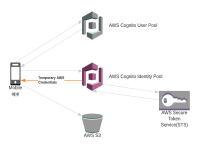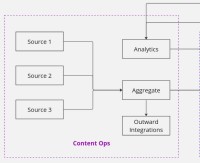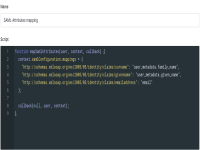Flux-CD Pattern for AWS CDK8s Services
Jul 09, 2023
AWS Cloud Development Kit for Kubernetes called cdk8s generates Kubernetes manifest files for Kubernetes (k8s) deployments and services. Flux CD deploys new and modified manifests via scanning git repositories. You may not want to store the generated k8s manifests because the cdk8s application may generate different configurations for the same services based on the application state and environment variables. In that case, to help Flux-CD pick the desired configuration, you'll have to use a kustomization overlay. The overlays need to be created every time after the manifests are generated across all of the k8s services. All the repetitive steps above increase the complexity and brittleness of configuration management. This post describes a simple and scalable pattern for the synchronization of multiple k8s services.
High Level Architecture

In the above setup, there are three k8s services: nodezoo-npm-service, nodezoo-github-service, and nodezoo-info-service. Each service's k8s manifests are stored in an eponymous branch in a single manifest repository (nodezoo-k8s-manifests). The flux configuration repository is applied to the k8s cluster whenever a new service is added to nodezoo-k8s-manifests. When changes are detected in the nodezoo-k8s-manifests branches, their associated k8s configuration is changed automatically.
Configuration
The configuration across the various repositories is as follows.
Kubernetes Service
Each of the k8s services such as nodezoo-npm-service have the standard k8s manifests with a service (of kind Service) and deployment.
Manifest Repository
The single manifest repository has a simple kustomization file that references the manifests pushed to the branch.
resources:
- nodezoo-npm-service.k8s.yamlWhen a new k8s service is added, the kustomization file and the service manifests need to be pushed to a new branch with the same name as the service.
Flux Configuration
Flux is configured to watch the manifest repository instead of the service repository.
---
apiVersion: source.toolkit.fluxcd.io/v1
kind: GitRepository
metadata:
name: nodezoo-npm-service
namespace: flux-system
spec:
interval: 30s
ref:
branch: nodezoo-npm-service # branch to watch
url: https://gitlab.com/n1470/nodezoo-k8s-manifests.git # repo to watchWhen a new k8s service is added, the flux configuration needs to be updated with the additional manifest source.
Automation and Scalability
All the above flows can be automated with gitops. For example, when a tag is pushed to any of the k8s services, it can trigger a CI action to generate the manifests and push them to the single manifest repository (nodezoo-k8s-manifests) while the static assets are pulled from a common source such as s3.
This method is scalable because it is constant in terms of repositories needed for synchronizing with flux and the Kubernetes cluster. This setup will always have one repository that can support multiple services with branches.
Source Code
The source for all the examples are open source.
- nodezoo-k8s-manifests. The deployment files are in different branches.
- nodezoo-flux
Related Posts
Authentication and Authorization with AWS - API Gateway
Dec 29 2021
AWS Cognito User Pools and Federated Identities can be used to authorize API gateway requests.
Authentication and Authorization with AWS - About IAM
Sep 12 2021
Amazon Web Services (AWS) references a dizzying number of concepts, resources, patterns, and best practices to provide a fully managed…
Authentication and Authorization with AWS - Federated Access
Nov 21 2021
AWS Cognito Identity Pools provide authenticated users access to AWS resources.
Message Delivery Guarantees with ActiveMQ
Aug 17 2019
Apache ActiveMQ is a mature messaging middleware.
How Headless CMS work
Jun 25 2023
Headless CMSs came about because it is hard to build a single platform that content writers like using and software developers like…
How this Blog Works
Nov 15 2020
I find myself scratching my head everytime I need to explain the inner workings of my blog. It is not because it is special or complex.
How Time-based OTP (TOTP) works
Sep 10 2023
The adoption of two-factor authentication (2FA) has been steadily growing over the past three years.
Password-less Web Login with a Mobile App
Apr 17 2022
If you have used Whatsapp web, you have experienced the use case explored in this post.
Technical Decisions that you'll Regret Later
Jan 28 2024
Software development Teams make many decisions while building systems.
Lessons from Service Oriented Architecture (SOA)
May 23 2021
SOA invokes mixed feelings amongst Software Architects and Developers. It began with a promise but ended up confusing people.
Authentication and Authorization with AWS - Cognito Sign-up and Sign-in
Oct 17 2021
Amazon Web Services (AWS) provides Cognito to delegate authentication and authorization out of applications completely.
Authentication and Authorization with AWS - Cognito SAML Integration
Nov 14 2021
AWS Cognito integrates with a corporate identity provider such as Active Directory (AD) using SAML.












